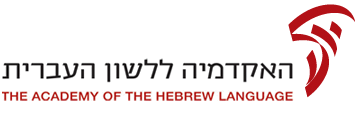

SAN DIEGO — As the president of the Academy of the Hebrew Language since 1993, Prof. Moshe Bar-Asher has many friends and former students around the world. For example, he recently recalled in his courtly English, he once had the pleasure of teaching Mira Balberg, who is now a professor in UC San Diego’s Jewish Studies Department.
Himself a professor emeritus of Hebrew Language at the Hebrew University of Jerusalem, author of 18 books, and a recipient of the Israel Prize in the Study of Hebrew Language, Bar-Asher is, (if Hebraicists will forgive two Yiddish expressions), both a maven and a macher in the world of the Hebrew language. Now he and his colleagues are embarked on a project that he estimates will cost between $50 million and $60 million, building in Jerusalem a museum of the Hebrew language, which he says will impart to visitors two main stories.
“One will tell the story of between 31 and 32 centuries of written Hebrew, following every century by a word, or an expression, or by a text,” he said in a telephone interview from Jerusalem. “The second story will be about the revival of modern secular and spoken Hebrew starting in the 1880s with the arrival of Eliezer Ben-Yehuda.”
The museum will supplement the Academy’s ongoing activities of writing a historical dictionary of Hebrew, covering the language’s development from approximately the 12th Century BCE, and also serving as an Internet resource for people who want to know how a word from a foreign language can be translated into Hebrew. Questions may be asked of the Academy’s volunteer experts via Facebook, Twitter, and Instagram.
In a recent week, Bar-Asher said, the Academy handled 750,000 inquiries, from people whose interests ranged from orthography (spelling) to translations from English, Russian, or some other language. Additionally, he said, “We have committees that work, for example, on medical vocabulary.” Doctors at well-known hospitals in Jerusalem, Tel Aviv, Ramat Gan and Haifa “came to me and asked to create a new dictionary for medicine, so on the committee we have 11-12 doctors, all of them volunteers” Bar-Asher points out he also is a volunteer, putting in approximately 25 hours a week in service to the Hebrew language.
 While the Academy of the Hebrew Language recommends new Hebrew words, ultimately it is the news media that becomes the final arbiter of whether the words will be used by the general population, Bar-Asher said. If broadcast and print journalists use the words in their stories, the words become popularized. If journalists don’t pick up the words, they could soon become forgotten.
While the Academy of the Hebrew Language recommends new Hebrew words, ultimately it is the news media that becomes the final arbiter of whether the words will be used by the general population, Bar-Asher said. If broadcast and print journalists use the words in their stories, the words become popularized. If journalists don’t pick up the words, they could soon become forgotten.
I asked if there were a new Hebrew word for the coronavirus, which led to an interesting discussion. He said that “coronavirus” has become an international word, recognized in many languages. He was opposed to Hebraicizing the word, on the grounds that “we hope it is a temporary word.” On the other hand, he said, “we do accept many words from other languages” and such was the case even back to Biblical times. “The Bible has loan words from Egyptian, Arcadian, and Aramaic,” he said. “The Talmud has over 2,000 words from Greek and Latin.” So, Bar-Asher commented, it would be “foolish to say that every word must be translated” On the other hand, “Language is not only a story for linguists; it is a culture. If Hebrew will be neglected by using many, many English words, it will disconnect people from the continuation of our culture. So we have to find an exact equilibrium between two ideas — to guard our culture, but not to forget that we live in an international world.”
More information about the Academy of the Hebrew Language can be found on their website: https://en.hebrew-academy.org.il.